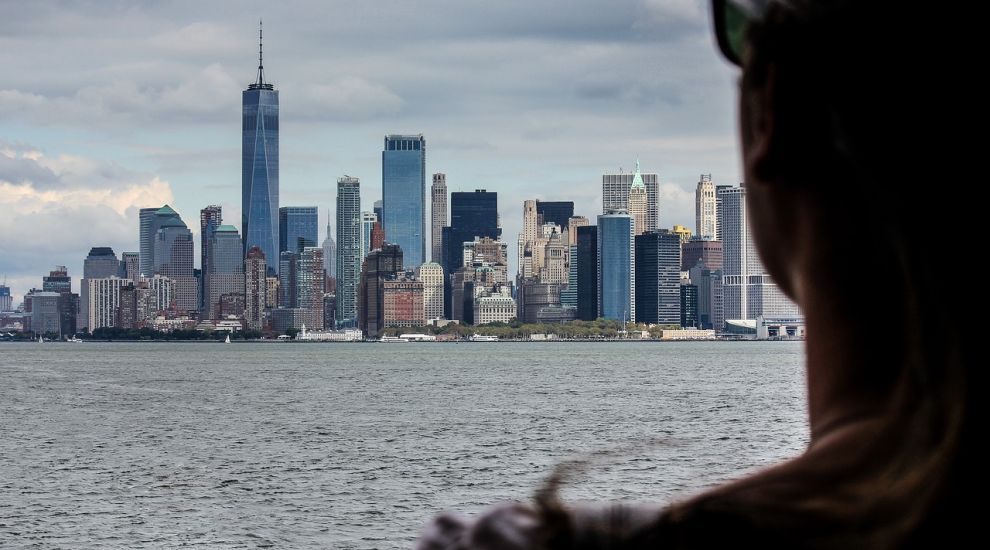


Continuing with the International Women's Day theme, the Ladies' College has shared a piece of imaginative writing by one of it's pupils.
By The River, authored by Mathilda Litten tells the story of a woman in New York City through the eyes of a bystander:
The dimly lit street has been left empty, the peeling walls lined with overflowing recycling bins and empty takeout cartons. The only sound is the rats scurrying amongst the rubbish, the occasional pointed nose and yellowed eyes appearing over the top of an iron can and sniffing cautiously into the cold night air before returning to its meal. Halfway down the cobbled street, a pile of rain-sodden moving boxes lies abandoned, stacked haphazardly against the exposed brick, worn belongings spilling out the top and into the road. If you look closely, next to the boxes sits a woman bathed in shadow. At first your gaze glances past her; she has the vacant dreamy-eyed expression of someone lost in the undercurrent of New York’s drug problem. Her dress, although clearly expensive, is out-of-date and filthy; veins of dirt run through the pale-yellow cotton and the smell of urine that goes hand in hand with big cities rises from her spotted skin. At first glance, she is not an unordinary sight for the city.

Pictured: Mathilda Litten is a student at The Ladies' College.
But if you look closer you might see the torn hospital band hanging loosely round her wrist, frayed at the edges like someone had taken to obsessively gnawing at the paper. Or the unopened bottle of pills discarded by her ankle, the label demanding two capsules a day, one with breakfast and one with lunch. You might see the way her mouth moves, muttering perpetually into the dawn lit sky, pausing every few seconds and then she bobs her head enthusiastically towards the stars. For a long time the woman remains in the street, occasionally breaking out in chatter while she sits, her idle gaze half-turned to the sky. Every so often the sliver of moon catches on her silvery blonde hair, setting her whole head alight. I stay and watch her as she murmurs to herself.
By the time the woman pushes herself to her feet, dawn has graced the sky, bathing the light with oranges and pinks and blues, and the street is filled with people. Her gaze has cleared a little, but she still whispers to the air. Occasionally the people milling about stop to stare at her, pity or disgust lacing their features, others titter awkwardly, and then the crowd is moving again, no time to spare in their busy day for a woman lost to another world.
I follow her, tracing her through the battered city streets. Despite her ragged look and her dazed expression most people ignore her, barely sparing her a second glance as they push past her. She stumbles on, quietly this time, until her legs start to wobble, and she turns to lean against a window display, the only shop in the street not yet dressed for Christmas. I stop again, this time just across the street from her; she either hasn’t noticed me or is dutifully ignoring me. She looks tired. Sunken shadows circle her eyes, and despite her youth, creases splinter across her face that speak of weariness and fear-fuelled exhaustion. Once she was beautiful, fine honey hair, glowing complexion and wide brown eyes framed with dark lashes. Now her eyes are dull and her hair has faded, flowing locks morphing into brittle silvery straw. Her skin is marred with the scars of self-destruction, crevices and fine lines of brown and scarlet entwining with fading streaks of white, embroidering a tapestry as intricate as that of a spider’s web across her arms and face.

Pictured: New York is the location for Mathilda Litten's imaginative writing.
She seems resigned to stand outside the shop, leaning heavily against the glass like she’s willing her limbs to meld with it. Her weariness is evident in the bow of her shoulders and the involuntary shutter of her eyelids. She’s half-lost, head lolling against the frozen glass, when her eyes open wide and she straightens like she’s suddenly remembered that she started walking to get somewhere. With obvious effort she pushes off the glass and continues wandering down the road.
This path leads out of the city - to nowhere but landfills and stagnant, rubbish-littered river water that entered NYC clean and pure but shall leave grimy and stained, forever marked by the city and its people. We pass cracked roads and battered trucks and broken houses, each more rundown than the last, but still she walks on.
It’s noon by the time we leave the city behind, her stumbling rather than walking and me trailing a little distance behind, closer than before. Crumbled concrete morphs into bare trees and icy winds - glacial when unshielded by apartment buildings and the bodies of a thousand other people - all whilst the sun turns over and burns the sky on its way home. She doesn’t stop until all that surrounds us is brown leaves and the foggy stone of the mountains that guard the city. She halts in a clearing, and I finally understand the purpose of her journey: before her the river stretches out, ten metres wide at its narrowest and untarnished. She always adored the river, she said the sight brushed the dust from her soul, but now she gazes at it with something akin to envy glinting in her eyes.
She takes a step forward, another step, and another until she is stood on the bank, the occasional spray of water arcing through the air and settling on her calves. When the first rain drop falls, she tips her chin towards the setting sun and lets the water engulf her, running rivulets down the gentle curve of her nose and the shadow of her cheekbones. Her fingers reach up to swipe the water from her lashes before she turns and looks straight at me. In her eyes hopelessness and the weight of resilience spark and writhe with one another in the ultimate fight. It is now that I realise she is crying. Gentle tears mixing with the rain as the sky weeps with her. She stands against the backdrop of raging mountains and the ceaseless river, her mind tattered and her body ravaged by her incessant searching to disappear through the pills and injections and powders that plague the city, lurking in street corners and behind park trees.
She craves escape, and today war will rage for the last time.
Her eyes shutter closed and she turns back to the inevitable, takes another step over the edge of the bank. She hangs in the air for a second too long, as if the wind is reluctant to release her and the water unwilling to claim her, but then she is falling and the currents sweep her up.
Her limbs are pinched and pulled by the river, her hair streaming in an anarchic cloud around her neck and shoulders, but her features are smooth, peaceful even, like she has befriended the chaos and goes with it willingly.
I watch as the river carries her and the pink bleeds from her skin until she is nothing but a ghostly fleck in the expanse of blue, and then I rise from the bank and begin the journey back to the city. She is but another black mark in the tally of lives lost to the city, and soon I shall find another to follow amongst the streets paved with gold. But for this moment my mind shall stay with the stars that dance in the sky, and the lost woman who now dances with them.
Comments
Comments on this story express the views of the commentator only, not Bailiwick Publishing. We are unable to guarantee the accuracy of any of those comments.